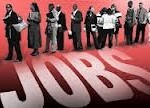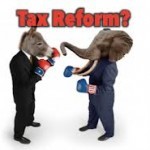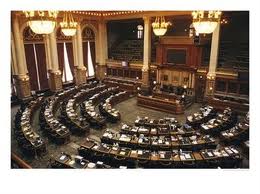
by | May 8, 2013
 (The following is a guest piece from Polk County GOP Co-Chair Chad Brown)
(The following is a guest piece from Polk County GOP Co-Chair Chad Brown)
The political season in Iowa never ends, and the county leadership of Iowa’s 3rd Congressional District is on the move to organize. The harder we work to organize the counties, both Iowa’s 3rd Congressional District and RPI will grow in strength. Some of my activist friends have wanted an explanation of the District Executive Committees, so I wrote this explanation to detail their role.
District Executive Committees have traditionally been a vital ingredient to the success of the Republican Party in Iowa. Their important role is detailed in the RPI Constitution. Traditionally, the Republican Party is built as a grass roots Party that was always strong because it had a firm foundation and was built from the ground up. Unfortunately, the District Executive Committees were deactivated within recent years and that vacuum was filled by powerful single issue groups that dominated the leadership selection process by preventing Republican County leaders from talking to each other and promoting leadership from the grass roots. We want to restore the grass roots to the Republican Party and include more people. This is why people used to refer to the G.O.P. as The Big Tent.
It’s unfortunate that these long-standing Committees were deactivated and silenced, but the new counties’ executive leadership in the 3rd Congressional District are getting back to basics! We are here to improve and unify the Republican Party and get more people involved. The executive leadership of the county-level central committees of the Republican Party of Iowa located within the Third Federal Congressional District of the State of Iowa have called for its first official meeting to be held on May 7 to discuss and consider certain specific matters.
This is an exciting time as we begin to restore an important tradition of grass roots to the Republican Party in Iowa.
Chad Brown, Polk County GOP Co-Chair and 3rd Congressional District Executive Committee ————————————————————————————————-
Article VII, paragraph 1 of the RPI Constitution states:
Article VII District Executive Committees
1. The District Executive Committee shall consist of the Chair and Co-Chair of each County in the Congressional District plus one additional representative for every fifty thousand (50,000) population in that County based on the most recent federal census. The additional County representative sh…all be elected by the County Central Committee.
2. The District Committee shall: (1) direct and coordinate Republican activities in the district, including organizational, candidate recruitment, and finance efforts; (2) coordinate the congressional and legislative campaigns in the district for the duly selected Republican nominees; (3) perform all of the duties relating to any election to fill a district vacancy on the Republican State Central Committee; (4) advise the congressional district’s representatives on the Republican State Central Committee; and (5) do all other things which serve to promote the welfare of the Republican Party and the orderly and successful conduct of the election campaign in the congressional district.

by Steven Waechter | May 3, 2013
 Having nothing better to do, I decided to spend Monday morning on the DMACC campus for a spring career fair. I wanted to wander around and ask questions to people to try and gauge their perception of the job market, but I had no intention of simply administering a poll. No, I was going to make people defend their statements by asking why they held that belief, like Socrates but without the profoundness.
Having nothing better to do, I decided to spend Monday morning on the DMACC campus for a spring career fair. I wanted to wander around and ask questions to people to try and gauge their perception of the job market, but I had no intention of simply administering a poll. No, I was going to make people defend their statements by asking why they held that belief, like Socrates but without the profoundness.
I asked jobseekers if they were feeling optimistic or pessimistic. I asked recruiters about what kind of people they are looking for, both in terms of skills and personality.
Optimistic, They Think
Personally, I believe that optimism is stupid and should be hated, but I appear to be alone in this sentiment. Not one person admitted feeling pessimistic when asked directly, but when asked why they felt optimistic the responses were not very convincing. Most of them professed to be “upbeat†people, none of them based their professed optimism on confidence in finding employment.
One guy challenged me to explain how a person could get out of bed without being optimistic; I explained that getting out of bed has more to do with an urgent need for urination than a sunny disposition.
With only minimal coaxing I got a number of people to divulge some worries they held about finding work that paid sufficient wages to get on with their lives. This was the sentiment from some cosmetologists and a video store clerk who found my line of questioning strange but entertaining.
One young lady had experience in call center collections. I always wondered what people with lip rings ended up doing for a living, and now I know.
One quite profound comment I received was from a jobseeker who was leaving when I spoke to him. He was feeling pretty good about the day, and explained that it was because he actually got to speak with real-life people about getting a job, which is a novelty in a world where everything is now done online.
What the Recruiters Had to Say
Not just wanting to badger the jobseekers, as lunch approached and the crowd thinned out I began focusing on the recruiters – I was willing to be obnoxious but did not want to be disruptive, so waiting until the recruiters had nothing to do seemed like the polite way to go about things.
I asked the recruiters about what kind of people they are looking for, both in terms of job skills and personality.
In terms of available jobs, IT professionals, nursing at all levels, and financial advisors appear to be in growing demand in Iowa; I would speculate that this is due to the aging population needing health care and financial services in greater numbers.
Sales positions were a bit harder to come by, warehousing and light manufacturing appear to be evening out, and accounting positions are open but require some specific knowledge of one area of accounting, which could make job hunting difficult for some of the accounting professionals.
Type-A personalities
I spoke at some length with a recruiter about what sort of personality her company seeks. Her comments boiled down to “a networking, outgoing, team player with a Type A personality.†It sounded to me that everyone needs to be a sales rep even if they aren’t a sales rep. She agreed with that sentiment.
Sorting personalities is largely bull wash, but there are clear differences between people who prefer boisterous activity to pensive reflection. I vaguely remember going to some sort of leadership conference in college where we were sorted into Blue, Orange, Gold and Green personalities. I don’t remember the test, but I do remember being in the smallest group.
I ran the Introvert-Extrovert angle by some other recruiters. They all agreed with the first recruiter, which I found annoying because I am the more pensive, less diplomatic, scowling type who prefers libraries to call centers – “an atmosphere as restful as an undiscovered tomb,†as Professor Henry Higgins put it.
The National Career Readiness Certificate Strikes Again
Iowa Workforce Development was there to push the NCRC, which I didn’t expect although it didn’t surprise me. The NCRC is being rolled out through the Skilled Iowa Initiative under the supervision of the Lieutenant Governor.
The effort is two-pronged, in that they must convince people to take the test, as well as convince employers to value the results in their hiring efforts – not to mention informing employers that the NCRC is a thing that exists, because most of them still don’t.
Final Thoughts
Perhaps the whole thing was absolutely pointless. Maybe all I did was waste time, irritate many, and perhaps amuse a few people who aren’t used to being accosted by a random guy asking inane questions, but I encourage all of you to try it sometime because it is sort of fun.
The people I spoke with seemed intelligent, capable people who were eager to work. The recruiters seemed happy to speak to me as well as to jobseekers. Whether it will translate into actual people obtaining actual jobs, I may never know.
Nobody seemed terribly confident. People professed to be optimistic but didn’t know why, recruiters thought people should be optimistic but couldn’t explain why, and the various workforce organizations thought that they had the answers – new tests, new skills, and new strategies – but couldn’t explain why these medicines would work in the actual economy.
I left more convinced than ever of one thing; the American economy doesn’t work for a large number of people. In such an economy, the only real opportunities are the ones you make yourself. There was a time when most Americans had independent livelihoods, and I think it is time to re-examine self-employment.
Despite what you hear from politicians, the government hates self-sufficient people – they are too difficult to tax. It is much easier to tax a Bud Fox (Wall Street) than a Charles Ingalls (Little House on the Prairie,) which explains so much about our nation if you stop and about it.
We need as many people as possible to be as independent as possible from the mainstream economy; not just independent from government support, but people who don’t need to work for others to earn a living. In such a world, the career fair becomes absurd as a concept, not just made absurd by a little Socratic questioning.

by | Apr 23, 2013
 Lt. Gov. Kim Reynolds has announced she is not running for the open US Senate on November 4th 2014. The field will form quickly once Steve King makes a decision, which for the good of the Party should come one way or another very soon. Some prior analysis of this race by The Conservative Reader: Iowa can be read here. Her complete statement is below:
Lt. Gov. Kim Reynolds has announced she is not running for the open US Senate on November 4th 2014. The field will form quickly once Steve King makes a decision, which for the good of the Party should come one way or another very soon. Some prior analysis of this race by The Conservative Reader: Iowa can be read here. Her complete statement is below:
Dear Friends,
When Governor Branstad chose me as his Lieutenant Governor in 2010, I was honored to be a part of a team that would put our state back on track with a focus on job creation, making our schools the best in the nation, and restoring stability and predictability within Iowa’s budget.
Thanks to your support and your help, we are well on our way. We inherited a $900 million budget gap and turned it around into a significant ending balance. Our innovative education reform measures continue advancing through the Legislature, and once signed into law, our students will receive the world-class education they deserve. This year, we expect to enact major property tax reforms that will reduce property taxes for all classes of property.
I am proud to Chair the Governor’s Science Technology Engineering and Math (STEM) initiative, where thousands of Iowa students are gaining the knowledge and skills they need to compete in a 21st Century economy.
And just today – the Governor and I attended a groundbreaking for a new Facebook facility, while Google announced another multi-million-dollar expansion. Since the governor and I were elected, we have seen more than $6 billion in capital investments in Iowa – and we are just getting started!Governor Branstad and I still have a lot we want to accomplish on behalf you, the people of Iowa.
That’s why, after serious and thoughtful discussions with family, friends, supporters and constituents, I have decided to remain as Lieutenant Governor and will not seek a seat in the United States Senate.
I appreciate all the support, prayers and well-wishes you have given me as I have considered a run for U.S. Senate. I truly believe that my focus needs to remain on being Lieutenant Governor and working with Governor Branstad as we continue to move Iowa forward.
Thanks, and I look forward to visiting with you in your community soon.
Sincerely,
Lieutenant Governor Kim Reynolds

by | Apr 23, 2013
 Despite both Parties rhetoric to the contrary, I am hearing the chances of any significant Commercial Tax Reform in Iowa is dwindling.
Despite both Parties rhetoric to the contrary, I am hearing the chances of any significant Commercial Tax Reform in Iowa is dwindling.
Though legislation has passed each chamber, the Conference Committee tasked with finding a compromise both sides are comfortable with will struggle mightily. This is largely due to the fact that the structure for reforming the tax code that passed by each chamber are not compatible with each other. While Senate Democrats are insisting on a tax credit formula which businesses apply for and are granted, the House Republicans and the Governor want changes to the percentage assessed values are taxed at as well as lower caps on local property taxes.
I highly doubt that either side will give much on their chosen structure for reform, and it is hard to imagine a combination of these approaches being melded together without a confusing mess being created. Additionally, as desperate as Republicans are to deliver lower taxes to their constituents, there is a feeling in the caucus that passing a half-measure now will make it harder to re-visit the issue in future sessions to achieve their true goal. Conversely, Democrats would not mind getting their tax credit approached passed and fighting future battles with Republicans on increasing the value of the credits as they come up.
The Big Picture
After essentially controlling Iowa government for years with only a Senate majority, I don’t see anyway that House Republicans and Gov. Branstad can cave and allow Democrats to dictate the structure of tax reform–the one issue Republicans unquestionably own over Democrats.
As I’ve said here before, I do believe that Sen. Gronstal has a stronger hand than many realize. Much like the Fiscal Cliff debate late last year where Congressional Republicans were forced to give in, Iowa Republicans are in the same tough position of seeing taxes rise if nothing is done. This fact transfers a significant amount of leverage to Senate Democrats and Sen. Gronstal is operating accordingly. As long as Senate Democrats perceive they can hold a majority while taxes rise this is the posture that Republicans will face. Looking long term, if Republicans are unable to extract major compromises from Democrats in the conference Committee–which I don’t expect–I am comfortable with once again waiting on a bill altogether.
Though it will be harder than in 2012 and is far from a given, with Branstad on the ballot in 2014 there is a shot at winning the Senate and a likelihood of holding the House. If a bill was done with Republicans holding both chambers and the Governors office clearly the dollar amount and scope of tax relief be much larger. Perhaps more importantly there would also be a significant flat tax component and an opportunity to end the system of automatic future tax increases we have now. The leverage that would be gained in future partisan tax scuffles by doing so would be worth it’s weight in gold.
Research and House Majority Leader Statement
The main bill in focus can be read here (SF 295)…and by the way I dare anyone to read this bill and tell me we can’t find a better way to write tax policy. In contrast, here is the Dix/Whitver optional Flat Tax bill offered earlier this session (SF 443). Should this approach to our taxes be taken most citizens interaction with the tax code could be limited to lines 1-35 of this bill. A welcome thought to a large majority regardless of Party.
Below is the full release from House Majority Leader Linda Upmyer regarding this topic:
Delivering significant property tax relief to the hardworking taxpayers of Iowa has been one of our top priorities since gaining the Majority three years ago. Each year we have passed numerous proposals to the Senate, but unfortunately have not been able to reach a consensus. I am optimistic that this will be the year for true reform.
This week the House passed a comprehensive tax relief proposal that provides significant property tax relief across Iowa and helps reduce Iowans’ income taxes. The bill, SF 295, does not shift the tax burden between classes of property, but instead ensures that relief and reform is permanent, predictable, meaningful, and affects all classes of property. If no action is taken on property tax relief, Iowa’s taxpayers are staring down the barrel of a $2.6 billion property tax increase over the next 10 years, with the majority of that falling to homeowners.
Under our current state tax structure, residential property taxpayers pay approximately half of Iowa’s property taxes. While our proposal provides property tax relief across all classes of property, residential property taxpayers would benefit the most under this plan.
Currently, in terms of K-12 school funding, the state covers 87.5% of the school foundation formula. The remaining amount needed for our schools to operate falls on the backs of local property taxpayers. Our proposal increases the amount of state aid going to our schools and decreases the reliance on local property taxes. As a result, local property taxpayers will be protected from future tax increases.
Our proposal would also implement a 20 percent rollback of taxable value on commercial and industrial property, which would occur over a period of four years, at five percent each year. This would provide approximately $339 million in property tax relief when fully implemented. Additionally, our plan would include a standing unlimited appropriation to backfill lost revenue from the rollback to local governments.
As previously mentioned, the bill also aims to reduce Iowans’ income taxes by giving individuals a choice to file under the current system or to use a 4.5 percent flat tax option. This legislation makes Iowa’s tax system simpler, flatter, and fairer. Under this proposal, each taxpayer is given a choice that will enable them to do what makes the most sense for their own household budget.
Finally, our proposal would send dollars back to Iowa taxpayers that have been collected in the Taxpayer Trust Fund. Only after the Legislature and Governor have agreed to a final budget that meets the priorities of Iowans and funds the state’s obligations, any excess revenue would be returned to Iowa’s hardworking taxpayers.
SF 295 passed the House with bipartisan support and was sent back to the Senate for their consideration. We look forward to continuing this discussion, listening to all ideas and proposals, and are hopeful a resolution will soon be reached that provides much-needed and real tax relief to all Iowans.

by | Apr 16, 2013
 Question: What has happened so far at the Statehouse this session?
Question: What has happened so far at the Statehouse this session?
Answer: Mostly a whole lot of nothing.
With potentially as little as three weeks left before they gavel out this has been one of the most uneventful sessions since I began following them closely. There could still be some fireworks in store as the larger ticket items get discussed, but as it stands now nearly everything Governor Branstad has signed into law has been with near unanimous consent from both Parties. In fact, of the 36 bills he has signed so far most have been technical or clerical items passed with no dissent—and all but a couple have had no more than 3 no votes between the two chambers (notable exceptions being SF 184 and HF 160).
Conservatives Left with Little to Cheer About
The fact that divided government is not producing sweeping changes is hardly surprising, but getting no movement whatsoever on traditionally non-entrenched ideological issues is disheartening. For me personally these disappointments include the first funnel costing any chance of banning Automated Traffic Enforcement and the second funnel claiming the Voter ID bill. Both these issues have a clear majority of public support (Voter ID routinely gets well over 70% in public polls), and despite this couldn’t even receive the dignity of a vote.
Additionally, the Education Reform effort (yes, even the version the Republican House passed with no inter-Party dissent) is a “solution†few true Conservatives can embrace. Firstly, it is dumping $200 million more dollars into a system that already has received a 35.4% funding increase since 2002—with no discernible benefit in most districts. And secondly, the kind of actionable teacher evaluation, similar to what exists in the private sector, is nowhere to be found. Instead, in my view, what this reform offers is a largely a bunch of feel good jargon about “laddersâ€, “career pathwaysâ€, “mentorsâ€, and “master teachersâ€â€”now does that sound like a recipe for fixing a failing school?
In some way this issue has been absurdly overcomplicated, how about teachers just teach kids the information in their textbooks like miraculously you were able to do in the 1990’s and we’ll call it even. In fact, prove you can do so and we will give you a nice raise…you know the way it has worked for all the rest of us in the private sector since our birth.
While it is true that many strong home schooling amendments got passed by the House, A) the big ones won’t make it to the Governor’s desk, and B) even if they did it still wouldn’t make this effort worthwhile. And while there are a few bright spots (HF 625 which expands STO’s), there was no movement of Sen. Zaun’s proposal last session to give parents true schools choice, nor was there any effort made to ensure we have strict 3rd grade retention for reading proficiency.
Tax Reform the Big Prize…But Likely to Elude Again
Just like last session, there was talk by both sides at the beginning that something needed to get done here, but the writing is on the wall that it won’t.
Largely this is because the players and the policies they are pushing for are essentially unchanged from last year. Additionally I am starting to think that Sen. Gronstal knows he controls only one branch—but perhaps has the trump card in this standoff.
The way I have started to look at this is to see the similarities between this situation and the fiscal cliff scenario faced by Republicans on the Federal level at the end of last year. If you recall, Republicans were forced into caving because the specific position they were in—if no deal was struck taxes on everyone in the country would go up on January 1st. Similarly, here in Iowa if nothing gets done our tax rates will continue to climb—a reality that would surely bother Republicans more than Democrats. Not only does this give Gronstal more leverage in cutting a deal to avoid the tax hikes, if he can manage to stave off a deal until rates are raised he is in the position of deciding then who “deserves†tax cuts. As frustrating as this tactic is for Republicans, as long as high taxes don’t cost Democrats their majority it is truly brilliant politics.
The Truth As I see ItÂ
I would love to be able to say everything is looking up here in Iowa and nationwide, but the evidence disagrees. Coming off a brutal performance last November when Mitt Romney was unable to defeat a president with a terrible record and Republicans failed to take the Iowa Senate, we are now seeing the results. This legislative session is almost a mirror copy of the last and the chances of anything passing at all are slim–and unfortunately the chances of passing any significant Conservative policy is hopeless. Simply put, at the moment the landscape is virtually barren when it comes to potential political victories.
Elections indeed have consequences–and Conservatives are feeling them now. We must do better as a Party going forward–2014 awaits and brings another chance to make a profound and positive legislative impact.

 (The following is a guest piece from Polk County GOP Co-Chair Chad Brown)
(The following is a guest piece from Polk County GOP Co-Chair Chad Brown)






